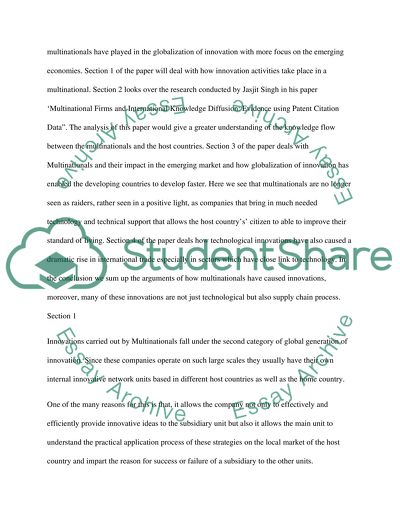Cite this document
(“Discuss the role of multinationals in the globalisation of innovation Essay”, n.d.)
Retrieved from https://studentshare.org/environmental-studies/1411899-discuss-the-role-of-multinationals-in-the
Retrieved from https://studentshare.org/environmental-studies/1411899-discuss-the-role-of-multinationals-in-the
(Discuss the Role of Multinationals in the Globalisation of Innovation Essay)
https://studentshare.org/environmental-studies/1411899-discuss-the-role-of-multinationals-in-the.
https://studentshare.org/environmental-studies/1411899-discuss-the-role-of-multinationals-in-the.
“Discuss the Role of Multinationals in the Globalisation of Innovation Essay”, n.d. https://studentshare.org/environmental-studies/1411899-discuss-the-role-of-multinationals-in-the.


